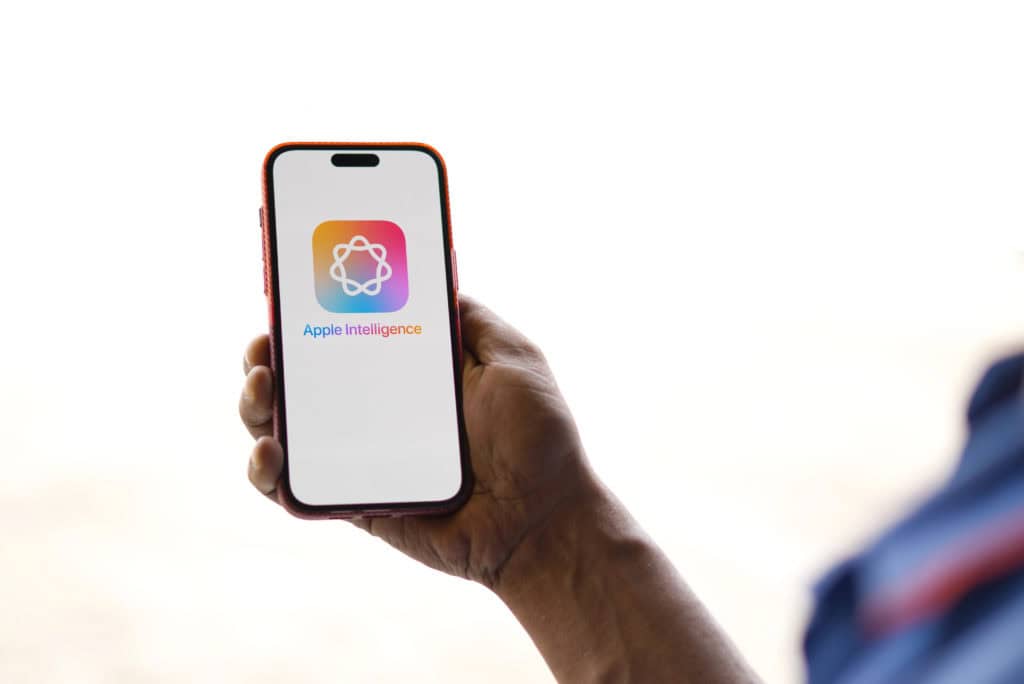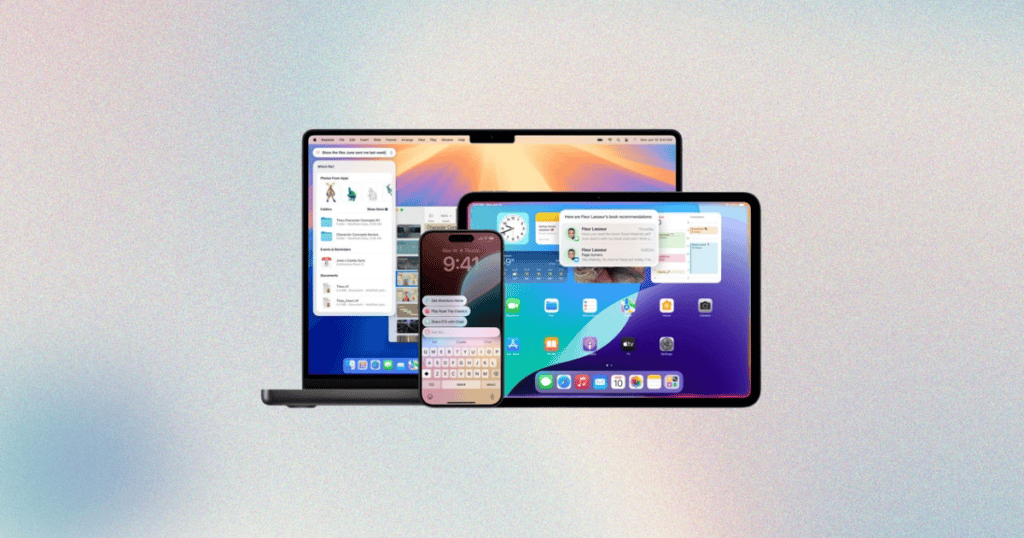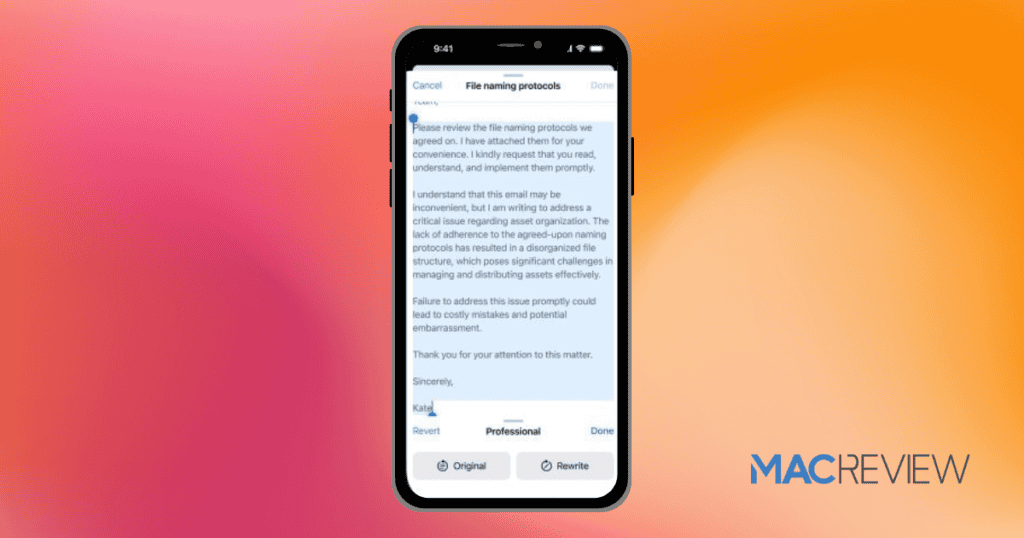In the fast-paced world of artificial intelligence, Apple Intelligence sets itself apart with its user-centric strategy, emphasizing privacy, security, and seamless device integration. While many of its competitors focus on large, cloud-based AI models, Apple takes a different path by utilizing localized AI on its devices, enhancing both performance and user trust. This approach not only minimizes potential vulnerabilities associated with cloud reliance but also fosters an environment of transparency and security, which resonates deeply with consumers.
As we dive deeper into Apple’s distinct AI approach, it’s clear that their commitment to ethical practices, privacy, and contextual awareness is shaping the future of artificial intelligence and redefining the consumer technology landscape.
Unique User-Centric Approach
Apple’s AI approach is deeply rooted in providing a user-first experience. Rather than adopting a generalized, one-size-fits-all model, Apple ensures that its AI features are designed to enhance individual user interactions. Here’s how this approach benefits users:
- On-Device AI Models: Apple employs smaller, on-device AI models that minimize reliance on the cloud. This means tasks are processed directly on the device, improving speed and performance while protecting user privacy.
- Personalized Interaction: By integrating AI seamlessly into devices, Apple leverages contextual awareness, recognizing user habits, preferences, and contacts to provide tailored responses. This ensures that the AI works for the individual, not the masses.
- Privacy Protection: Perhaps Apple’s most significant differentiation lies in its commitment to privacy. Unlike many AI competitors, Apple does not collect or store user data to improve its AI functionalities. Instead, it focuses on local processing, ensuring sensitive information remains secure and uncollected.
This user-centric approach not only enhances the overall user experience but also fosters a sense of control, ensuring that technology serves individuals, not the other way around.
Emphasis on Privacy
In the AI industry, privacy remains a hotly debated topic, with many companies struggling to balance innovation with user protection. Apple stands out by prioritizing data protection and making privacy an integral part of its AI development. Here’s how Apple maintains its leadership in privacy:
- No Data Collection for AI Training: Apple’s AI does not rely on user data collection for training purposes, unlike many of its competitors. Instead, AI training is based on publicly available datasets, ensuring personal user information is never at risk.
- Apple Private Cloud: Apple has developed the Apple Private Cloud, which ensures that any data processing is done securely without storing user information on external servers. This transparency provides users with peace of mind, knowing their data is not being mishandled.
- Public Scrutiny of AI Systems: Apple allows public inspection of its AI server software, ensuring compliance with the highest privacy standards. This transparent approach builds consumer trust, showcasing Apple’s dedication to ethical AI practices.
By placing privacy at the forefront of its AI initiatives, Apple has successfully alleviated consumer concerns, positioning itself as the gold standard for data security in the AI world.
Seamless Device Integration
Apple’s unique device integration strategy further solidifies its position in the AI market. Rather than relying on cloud-based AI models, Apple ensures its AI operates directly on its devices, improving efficiency and user experience. Here’s why this seamless integration matters:
- On-Device AI: Apple’s AI systems are designed to run locally on devices, reducing the need for cloud resources. This device-centric model not only accelerates processing times but also helps conserve battery life, creating a more efficient user experience.
- Enhanced User Experience: By embedding AI features directly into existing operating systems, Apple offers users advanced functionalities without altering their workflows. Whether it’s natural language processing or real-time translation, users can benefit from AI in a way that feels intuitive and seamless.
- Improved Performance and Security: Processing tasks on-device means that users experience faster response times while also benefiting from enhanced security since their data remains on their device rather than being sent to the cloud.
This seamless integration ensures that Apple users enjoy a smoother, more intuitive experience, setting Apple apart from competitors who rely heavily on cloud infrastructure.
Contextual Awareness in AI
Another area where Apple excels is in its use of contextual awareness to improve the AI experience. By understanding user behavior and preferences, Apple’s AI provides more personalized and relevant interactions. Here’s how Apple utilizes contextual awareness:
- Personalized Responses: Apple’s AI leverages natural language processing to interpret user intent more accurately. By integrating contextual awareness, the system can recognize contacts, preferences, and previous interactions, allowing for more personalized responses and suggestions.
- Localized Data Processing: All data related to user interactions is processed locally on the device, ensuring that sensitive information never leaves the user’s phone. This protects privacy while still delivering a streamlined experience.
- Intuitive Task Management: By incorporating contextual cues, Apple’s AI can anticipate user needs and make suggestions in real-time, making interactions more efficient.
This use of contextual awareness not only improves the relevance of AI responses but also enhances user trust, as their data remains secure.
Comparing Competitors’ AI
When comparing Apple’s AI to that of its competitors, it’s clear that Apple’s approach is distinct. While many AI systems rely heavily on cloud computing for processing and storing user data, Apple’s on-device model sets a new standard for performance and privacy.
Competitors often use large cloud-based systems that:
- Collect and Store User Data: Many AI providers use user data to train and enhance their AI systems, raising significant privacy concerns. In contrast, Apple’s refusal to collect personal data for AI training sets it apart in the industry.
- Slower Processing Times: Reliance on cloud-based systems can lead to slower processing times, as data must be transmitted to and from the cloud. Apple’s localized AI ensures faster responses and a smoother user experience.
- Generalized Solutions: Competitors often offer broad, one-size-fits-all AI solutions, while Apple’s AI is more personalized, focusing on specific, practical applications like real-time translation and document summarization.
By prioritizing privacy, performance, and personalization, Apple has carved out a unique niche in the AI market.
Building Consumer Trust and Confidence
Apple’s success in the AI space is deeply tied to the trust and confidence it has cultivated among its users. With rising awareness around data privacy, Apple’s ethical approach resonates strongly with consumers. Key factors that contribute to this trust include:
- Transparent Privacy Policies: Apple’s clear policies ensure that users know their data is never collected for AI purposes. This transparency fosters confidence in their systems.
- Apple Private Cloud: By processing data in the Apple Private Cloud, users know their information is handled securely and responsibly.
- Publicly Inspected AI Systems: Apple’s willingness to allow scrutiny of its AI systems reinforces its commitment to ethical AI practices.
These measures ensure that Apple not only provides innovative AI technologies but does so in a way that places user privacy and trust at the core.
MacReview Verdict
As the world of artificial intelligence continues to evolve, Apple Intelligence stands out as a beacon of ethical innovation. By prioritizing user privacy, seamless device integration, and contextual awareness, Apple has redefined the AI landscape, offering a model that other companies will likely follow. In a time when privacy concerns are paramount, Apple’s commitment to safeguarding user data sets it apart, establishing it as a leader in the competitive AI market.
Looking forward, Apple’s continued dedication to personalization and privacy will shape the future of AI, ensuring that technology remains user-focused and secure for years to come.




